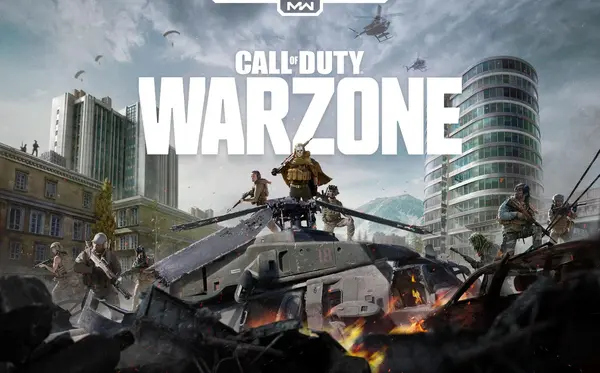Call of Duty: Warzone, the popular battle royale title, has faced numerous challenges, but none as persistent as the issue of cheating. From aimbots to wallhacks, cheaters have plagued the game, undermining its competitive integrity and player satisfaction. This article explores the root causes, impacts, and potential solutions to the cheater epidemic in Warzone.

Understanding the Cheater Epidemic
What Are Cheats?
Cheats are unauthorized modifications or programs that give players unfair advantages over others.
H3: Common Cheats in Warzone
- Aimbots: Automatically aim at opponents for precise accuracy.
- Wallhacks: Allow players to see enemies through walls.
- Exploits: Take advantage of bugs or glitches to gain the upper hand.
H4: Evolution of Cheating Tools
- Advanced cheats now integrate seamlessly, making detection harder.
Causes of the Cheating Problem
Accessibility of Cheats
The ease of accessing cheats contributes significantly to their prevalence.
H3: Online Marketplaces
- Websites and forums openly sell cheat software, often at low costs.
H4: Social Media Promotion
- Influencers and groups on platforms like Discord promote cheating tools.
Weak Anti-Cheat Measures
Despite efforts, anti-cheat systems often lag behind sophisticated cheats.
H3: Early Warzone Challenges
- Initial reliance on player reports made cheat detection slow.
H4: Cat-and-Mouse Game
- Developers patch vulnerabilities, but cheat creators find new exploits.
Impacts on the Player Base
Frustration Among Players
Cheating erodes trust and enjoyment in the game.
H3: Casual Players
- Encountering cheaters in public matches leads to disengagement.
H4: Competitive Scene
- Tournaments and ranked matches lose credibility due to cheaters.
Economic Consequences
Cheating can lead to financial losses for developers.
H3: Declining Player Retention
- Frustrated players often leave the game, impacting revenue.
H4: Negative Publicity
- Viral clips of cheaters tarnish the game’s reputation.
Developer Responses
Introduction of Ricochet Anti-Cheat
Activision launched Ricochet to combat cheaters more effectively.
H3: Features of Ricochet
- Kernel-level detection system monitors suspicious activity.
- Real-time data analysis identifies cheating patterns.
H4: Successes and Limitations
- Initial rollout reduced cheating, but sophisticated cheats persisted.
Ban Waves
Periodic ban waves aim to remove cheaters en masse.
H3: Temporary Relief
- High-profile ban waves create short-term improvements.
H4: Cheater Resilience
- Banned players often return with new accounts.

Community Involvement
Player Reporting Systems
Empowering players to report cheaters is a crucial component.
H3: In-Game Tools
- Simplified reporting interfaces encourage participation.
H4: Challenges of Verification
- False reports can overwhelm anti-cheat teams.
Content Creator Advocacy
Streamers and influencers often highlight the issue.
H3: Raising Awareness
- Popular creators bring attention to cheating through videos and streams.
H4: Encouraging Accountability
- Public pressure motivates developers to act swiftly.
Third-Party Interventions
Legal Actions Against Cheat Providers
Taking cheat developers to court has proven effective in some cases.
H3: High-Profile Lawsuits
- Activision’s lawsuits against cheat creators serve as deterrents.
H4: Limitations of Legal Measures
- New cheat providers emerge quickly, filling the void.
Collaboration with Security Experts
Partnering with cybersecurity firms can strengthen anti-cheat measures.
H3: Advanced Detection Systems
- Leveraging AI to identify unusual behavior patterns.
H4: Proactive Threat Analysis
- Monitoring cheat forums to predict new trends.
The Role of the Gaming Community
Promoting Fair Play
Fostering a culture of integrity can reduce cheating.
H3: Community Events
- Hosting events that emphasize skill and fair play.
H4: Positive Reinforcement
- Rewarding players who exemplify sportsmanship.
Educating Players
Raising awareness about the consequences of cheating can deter potential offenders.
H3: Campaigns Against Cheating
- Developer-led initiatives to highlight the harm caused by cheats.
H4: Player Testimonials
- Sharing stories of how cheating impacts the community.
Lessons from Other Games
Successful Anti-Cheat Systems
Studying other games’ successes can inform Warzone’s strategies.
H3: Valorant’s Vanguard
- Aggressive kernel-level anti-cheat implementation.
H4: Fortnite’s Legal Pursuits
- Regular lawsuits against cheat providers deter widespread cheating.
The Future of Anti-Cheat in Warzone
Evolving Technologies
Staying ahead of cheaters requires constant innovation.
H3: AI and Machine Learning
- Predictive algorithms to detect unusual player behavior.
H4: Enhanced Player Monitoring
- Real-time analytics to identify suspicious activities.
Strengthening Community Trust
Restoring faith in fair play is essential for long-term success.
H3: Transparent Communication
- Regular updates on anti-cheat efforts build confidence.
H4: Collaborative Solutions
- Engaging the player base in problem-solving fosters unity.

Conclusion
Cheating in Call of Duty: Warzone remains a persistent challenge, but through a combination of technological advancements, community involvement, and proactive developer actions, the battle can be won. By fostering a culture of fairness and continually innovating, Activision can restore balance and ensure an enjoyable experience for all players.


